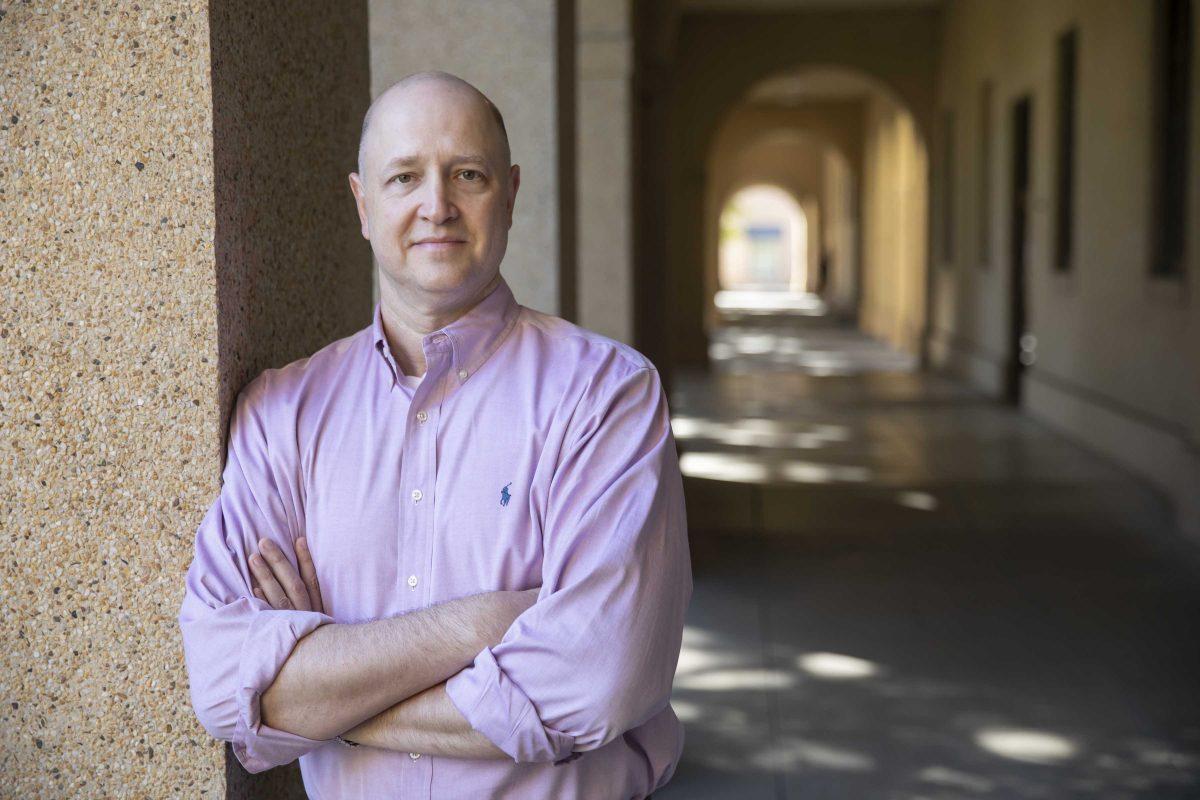LSU School of Social Work Professor Scott Wilks has been studying the effects of COVID-19 on ADRD caregivers’ mental and physical health after earning a one-year $90,625 grant from Health Resources and Services Administration.
Wilks has expertise in Alzheimer’s disease healthcare and related dementias (ADRD) care. His current project under the grant is different from his previous research because it is strictly focused on COVID-19.
Dr. Pamela Monroe, a professor of Child and Family Studies in the School of Social Work, said that the LSU School of Social Work is one of the three schools in the nation to earn funding from Health Resources and Services Administration.
“We worry that COVID-19 is expediting health decline among these caregivers,” Monroe said. “At the same time, we are so proud of Dr. Wilks and his incredibly competent interdisciplinary as they lead the state in assessing accurately this decline. Later, they intend to utilize these data for additional funded study to explore interventive solutions.”
Monroe said that the geriatric social work and ADRD service organization professionals will work together to “contribute to negative health of the caregiver, many of whom are older adults and have preexisting health concerns.”
Wilks said that COVID-19 has “intensified” the preexisting physical and mental health concerns that caregivers are at higher risk for compared to non-caregivers. Some of these conditions include depression and anxiety, as well as heart disease, diabetes and shorter life expectancy.
“[Caregivers] feel this duty to ignore their own health and focus exclusively on the health of their loved one,” Wilks said. “It’s what makes them compassionate and what makes caregivers, caregivers. But the more a caregiver neglects their health, the more likely their health will suffer. And as the caregiver’s health suffers, the care recipient’s quality of care suffers.”
Wilks’ project is devoted to addressing the health of ADRD caregivers during crises like COVID-19. Along with his research team, Wilks will accommodate caregivers through tele-health and other technology services.
Wilks and his colleagues are dispersing iPads to caregivers in the capital area of Baton Rouge who volunteered to be a part of the study. They use primarily Zoom to meet with caregivers once a month to “reinforce the understanding with these caregivers that their health is priority” and allow them to address their concerns.
“We hope that simply reaching out to these folks and also providing educational information and referrals to providers when necessary, it will be a meaningful intervention,” Wilks said.
The data outcomes will be documented after further assessing the physical and mental health and overall quality of life of the caregivers. Wilks said it is “too early” for there to be any observations so far in his research.
Wilks said that within the last ten years, there has been an increased consideration for caregivers’ mental health. Wilks also said that there has been an increase in federal funding from Congress toward caregivers’ health, especially during COVID-19.
The research Wilks and his colleagues are conducting is helping to close the “enormous gap” between healthcare providers and researchers.
“COVID’s forced people to accept [increasing demand for older adults’ quality health care], and to try to find solutions to that,” Wilks said. “We’re just doing our small part here in Louisiana with a particular demographic of that older adult population, ADRD caregivers, and we’re trying to make a difference.”








